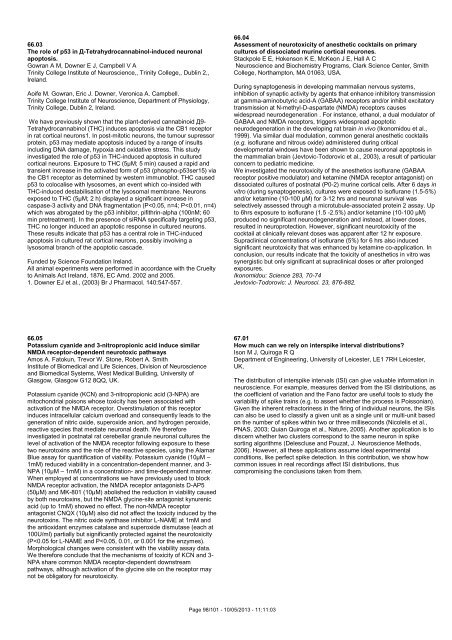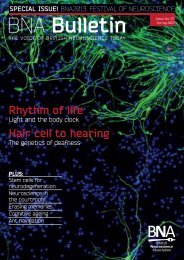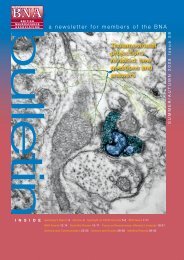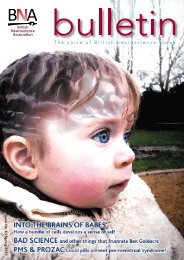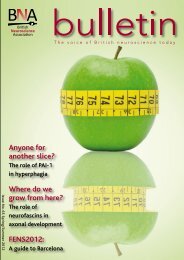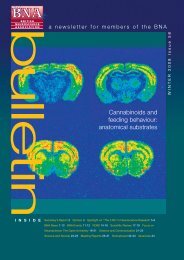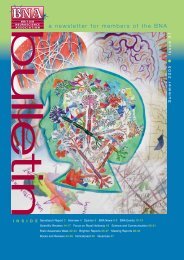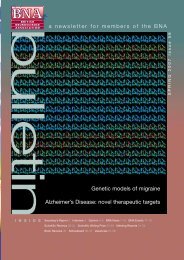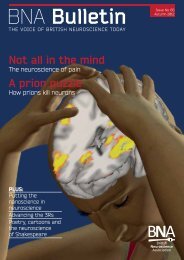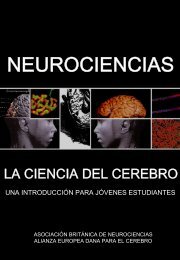Book of abstracts - British Neuroscience Association
Book of abstracts - British Neuroscience Association
Book of abstracts - British Neuroscience Association
You also want an ePaper? Increase the reach of your titles
YUMPU automatically turns print PDFs into web optimized ePapers that Google loves.
66.03<br />
The role <strong>of</strong> p53 in Д-Tetrahydrocannabinol-induced neuronal<br />
apoptosis.<br />
Gowran A M, Downer E J, Campbell V A<br />
Trinity College Institute <strong>of</strong> <strong>Neuroscience</strong>,, Trinity College,, Dublin 2,,<br />
Ireland.<br />
Aoife M. Gowran, Eric J. Downer, Veronica A. Campbell.<br />
Trinity College Institute <strong>of</strong> <strong>Neuroscience</strong>, Department <strong>of</strong> Physiology,<br />
Trinity College, Dublin 2, Ireland.<br />
We have previously shown that the plant-derived cannabinoid Д9-<br />
Tetrahydrocannabinol (THC) induces apoptosis via the CB1 receptor<br />
in rat cortical neurons1. In post-mitotic neurons, the tumour supressor<br />
protein, p53 may mediate apoptosis induced by a range <strong>of</strong> insults<br />
including DNA damage, hypoxia and oxidative stress. This study<br />
investigated the role <strong>of</strong> p53 in THC-induced apoptosis in cultured<br />
cortical neurons. Exposure to THC (5µM; 5 min) caused a rapid and<br />
transient increase in the activated form <strong>of</strong> p53 (phospho-p53ser15) via<br />
the CB1 receptor as determined by western immunoblot. THC caused<br />
p53 to colocalise with lysosomes, an event which co-insided with<br />
THC-induced destabilisation <strong>of</strong> the lysosomal membrane. Neurons<br />
exposed to THC (5µM; 2 h) displayed a significant increase in<br />
caspase-3 activity and DNA fragmentation (P


